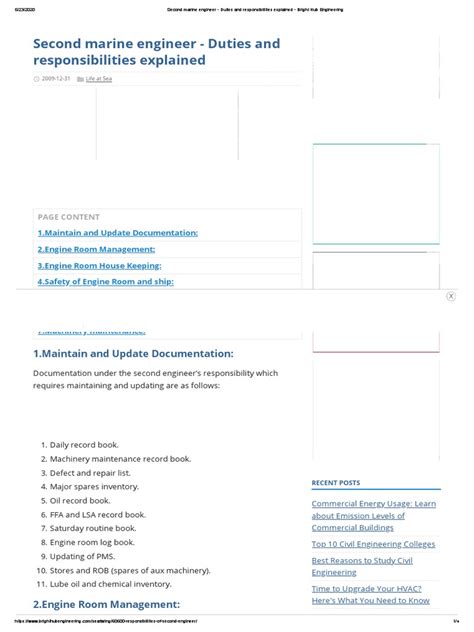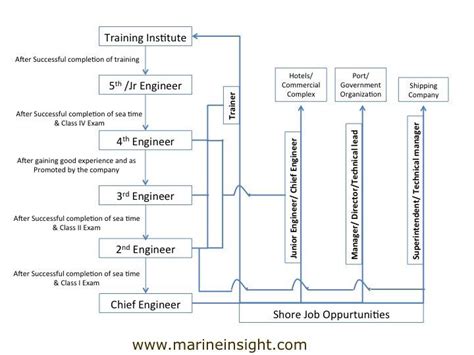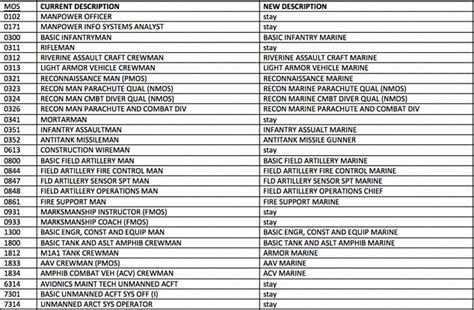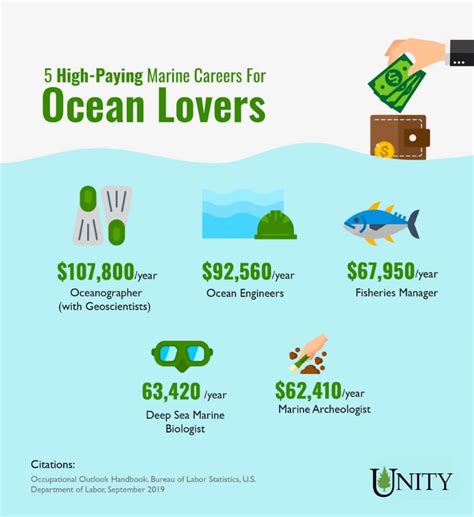Marine Jobs and Careers

Introduction to Marine Jobs and Careers

The marine industry is a vast and diverse field that encompasses a wide range of jobs and careers. From shipbuilding and repair to marine conservation and research, there are numerous opportunities for individuals to pursue a career in this exciting and dynamic sector. With the increasing importance of the ocean’s role in the global economy, environment, and human well-being, the demand for skilled and knowledgeable marine professionals is on the rise. In this article, we will explore the various types of marine jobs and careers, the skills and qualifications required, and the opportunities and challenges that come with working in this field.
Types of Marine Jobs and Careers

The marine industry offers a broad spectrum of job opportunities, ranging from technical and scientific positions to administrative and support roles. Some of the most common types of marine jobs and careers include: * Marine Engineers: responsible for designing, building, and maintaining ships, boats, and other marine vessels. * Marine Biologists: study the plants, animals, and microorganisms that live in the ocean and work to conserve and manage marine ecosystems. * Oceanographers: explore the ocean’s properties, phenomena, and processes, and apply their knowledge to understand and predict ocean behavior. * Marine Technicians: install, maintain, and repair marine equipment, such as sonar, radar, and navigation systems. * Ship Captains and Officers: command and navigate ships, ensuring the safe and efficient transportation of cargo and passengers. * Marine Conservationists: work to protect and preserve marine ecosystems, including habitats, species, and natural resources. * Marine Archaeologists: study the remains of past human cultures that are preserved in the ocean, such as shipwrecks and coastal settlements.
Skills and Qualifications

To succeed in a marine career, individuals typically require a combination of education, training, and experience. Some of the key skills and qualifications include: * Strong foundation in science and mathematics: marine careers often require a solid understanding of scientific and mathematical principles, such as physics, biology, and chemistry. * Technical skills: proficiency in technical skills, such as engineering, programming, and data analysis, is essential for many marine jobs. * Communication and teamwork: effective communication and teamwork skills are critical for success in the marine industry, where collaboration and coordination are often essential. * Adaptability and flexibility: marine careers can be demanding and unpredictable, requiring individuals to be adaptable and flexible in the face of changing circumstances. * Certifications and licenses: many marine jobs require specialized certifications or licenses, such as a captain’s license or a diving certification.
Opportunities and Challenges

Working in the marine industry can be rewarding and challenging, with numerous opportunities for career advancement and professional growth. Some of the benefits of a marine career include: * Variety and diversity: the marine industry offers a wide range of job opportunities, from scientific research to engineering and conservation. * Opportunities for travel: many marine careers involve travel, whether it’s sailing on a ship, working on a research vessel, or exploring coastal ecosystems. * Sense of purpose: working in the marine industry can be deeply fulfilling, as individuals contribute to the conservation and management of the ocean’s resources. However, marine careers can also be challenging, with: * Physical demands: many marine jobs require physical stamina, as individuals work in demanding environments, such as on ships or in coastal areas. * Time away from home: marine careers can involve extended periods away from home, whether it’s working on a ship or conducting research in a remote location. * Emotional demands: working in the marine industry can be emotionally challenging, particularly when dealing with issues such as marine conservation and the impact of human activities on the ocean.
🌊 Note: The marine industry is constantly evolving, with new technologies and innovations emerging regularly. Staying up-to-date with the latest developments and advancements is essential for success in this field.
Marine Education and Training

To pursue a career in the marine industry, individuals typically require specialized education and training. Some of the most common educational pathways include: * Bachelor’s degree: a bachelor’s degree in a relevant field, such as marine biology, oceanography, or engineering, is often the minimum requirement for many marine jobs. * Master’s degree: a master’s degree can provide advanced knowledge and qualifications, particularly for careers in research, conservation, and management. * Certifications and training programs: specialized certifications and training programs, such as diving certifications or engineering courses, can provide individuals with the skills and knowledge required for specific marine jobs. * Apprenticeships and internships: hands-on experience and training through apprenticeships and internships can be invaluable for individuals looking to gain practical experience and build their professional network.
Marine Industry Outlook

The marine industry is a growing and dynamic sector, with numerous opportunities for career advancement and professional growth. Some of the key trends and developments shaping the industry include: * Sustainability and conservation: the increasing importance of sustainability and conservation is driving innovation and growth in the marine industry, particularly in areas such as renewable energy and eco-tourism. * Technological advancements: advances in technology, such as autonomous systems and big data analytics, are transforming the marine industry, enabling more efficient and effective operations. * Globalization and trade: the marine industry is a global sector, with international trade and commerce playing a critical role in the transportation of goods and services.
| Marine Career | Median Salary | Growth Prospects |
|---|---|---|
| Marine Engineer | $90,000 | 10% |
| Marine Biologist | $60,000 | 5% |
| Oceanographer | $80,000 | 8% |

In summary, the marine industry offers a wide range of exciting and rewarding career opportunities, from technical and scientific positions to administrative and support roles. With the increasing importance of the ocean’s role in the global economy, environment, and human well-being, the demand for skilled and knowledgeable marine professionals is on the rise. By understanding the various types of marine jobs and careers, the skills and qualifications required, and the opportunities and challenges that come with working in this field, individuals can make informed decisions about their career paths and pursue a fulfilling and successful career in the marine industry.
What are the most in-demand marine careers?

+
The most in-demand marine careers include marine engineers, oceanographers, and marine biologists, as well as careers in sustainability and conservation.
What skills and qualifications are required for a marine career?

+
A strong foundation in science and mathematics, technical skills, and certifications and licenses are essential for many marine careers. Additionally, communication and teamwork skills, adaptability, and flexibility are critical for success in the marine industry.
What are the growth prospects for the marine industry?

+
The marine industry is a growing and dynamic sector, with numerous opportunities for career advancement and professional growth. Sustainability and conservation, technological advancements, and globalization and trade are driving innovation and growth in the industry.
Related Terms:
- marine engineer duties and responsibilities
- marine corps duties and responsibilities
- marine engineer roles and responsibilities
- marine job description list
- jobs offered in the marines
- coolest jobs in the marines



